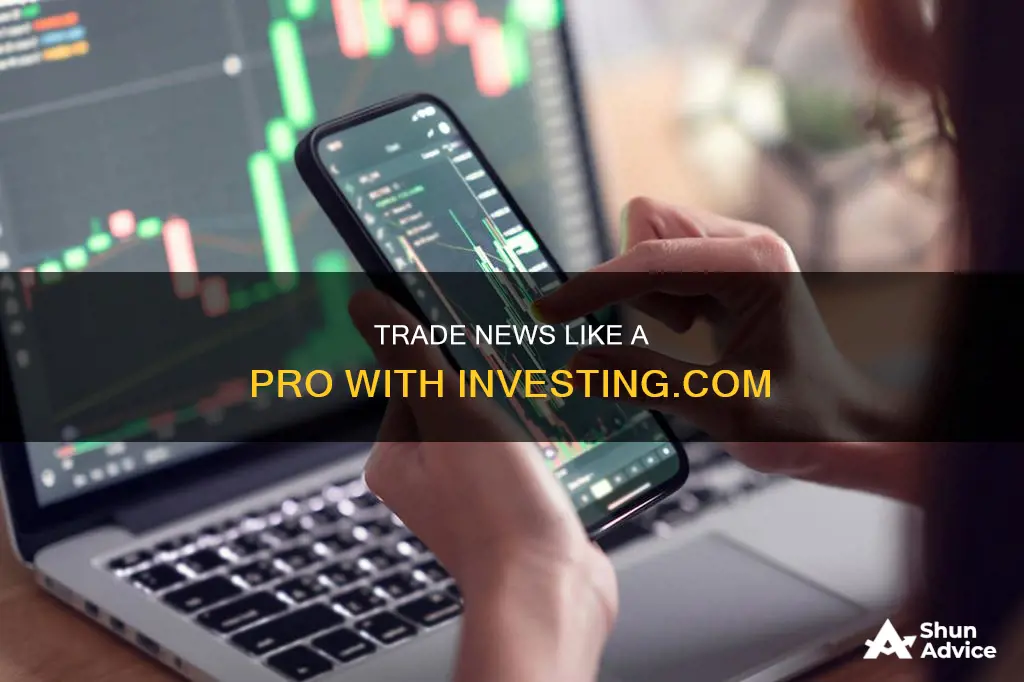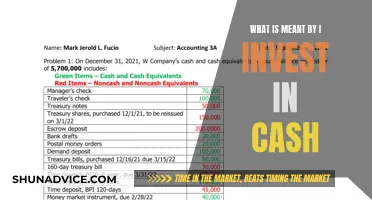
Trading news is a strategy that involves making investment decisions based on the release of impactful events in the financial markets. This strategy requires closely monitoring economic reports, geopolitical developments, corporate earnings releases, and other news events to capitalise on short-term volatility.
News trading demands a deep understanding of how different news events impact various assets. For instance, positive economic data might boost stock prices or strengthen a country's currency.
To trade news, investors need to understand market sentiment and consensus expectations surrounding the news. Deviations from these expectations often drive market movements, impacting trading decisions. It is also crucial to act proactively to news-related price action and make quick decisions to capitalise on short-term movements.
Additionally, implementing strong risk management strategies, such as setting stop-loss orders and defining entry and exit points, is essential to control losses and protect profits.
News trading can be challenging for beginners due to its fast-paced nature, heightened market volatility, and potential for unexpected price movements. It requires a good broker that can provide charts, news feeds, and economic calendars to facilitate the strategy.
| Characteristics | Values |
|---|---|
| Trading the news | A strategy in which traders base their decisions on the impact of news events on the financial markets. |
| News trading formula | Speed of News + Impact on Company + Perception of Traders = Price Fluctuation |
| Trading news releases | Look for a period of consolidation ahead of a big number and trade the breakout on the back of the number |
| Trading global news events | The economic impact on foreign and domestic markets can vary depending on the country providing the information |
| Scheduled news trading | Focus on specific, pre-scheduled news events or economic releases that have a notable impact on financial markets |
| Unscheduled news trading | React swiftly to unexpected or unplanned events that significantly impact financial markets |
What You'll Learn

Understand the different types of news that can be traded
News can be broadly classified into two categories: periodic or recurring news and unexpected or one-time news.
Periodic or Recurring News
This type of news includes scheduled releases that can impact the markets, such as interest rate announcements by central banks, economic data releases, and quarterly earnings reports from companies. For example, the Federal Open Market Committee's (FOMC) interest rate announcements are typically among the biggest market-moving events.
Unexpected or One-Time News
These are unforeseen events that can catch the markets off guard, such as a terrorist attack, a sudden geopolitical conflict, or a natural disaster. As a general rule, unexpected news tends to be more negative than positive.
Additionally, news can be specific to a particular stock or industry, or it can have a broader impact on the markets as a whole.
Economic Indicators
Economic indicators refer to data releases that provide insights into the health and direction of an economy. Examples include Gross Domestic Product (GDP), employment or jobs reports, inflation rates, retail sales, and manufacturing data. These indicators are closely monitored by traders and investors as they can influence monetary policy decisions and market sentiment.
Corporate Earnings Announcements
Earnings reports disclose a company's financial performance over a specific period, usually a quarter or a fiscal year. They detail revenue, profits, and expenses, offering a snapshot of a company's financial health. Earnings announcements can significantly impact a company's stock price, especially if they deviate from analysts' expectations.
Central Bank Decisions
Monetary policy decisions by central banks, such as the US Federal Reserve or the European Central Bank, can have far-reaching implications for financial markets. Changes in interest rates, quantitative easing programs, or forward guidance can influence bond yields, currency values, and stock market sentiment.
Geopolitical Events
Global or regional geopolitical events can affect investor sentiment and market confidence. Examples include elections, changes in government policies, international conflicts, trade agreements, or sanctions. These events can impact specific sectors, such as defence, energy, or commodities, or have broader implications for financial markets.
Major Policy Changes
Significant policy changes, often implemented by governments or regulatory bodies, can have a substantial impact on specific industries or the market as a whole. Examples include changes to tax policies, environmental regulations, labour laws, or industry-specific regulations. These policy shifts can influence investment decisions and market sentiment.
Traders and investors focus on news that has the potential to significantly impact the markets and create volatility. By understanding the different types of news and their potential effects, traders can make more informed decisions and capitalise on short-term market fluctuations.
Dividends from Investments: Operating Cash Flow Activity?
You may want to see also

Know the timing of news releases
Knowing the timing of news releases is crucial for traders to make informed decisions and avoid unnecessary risks. Here are some key points to consider when determining the timing of news releases:
Identify High-Impact News:
Focus on economic releases that tend to have the most significant impact on the markets. These typically include interest rate decisions, inflation data, unemployment rates, retail sales, and economic growth indicators. For example, the U.S. dollar is one side of many currency pairs, so U.S. economic releases often have a pronounced effect on forex markets.
Use Reliable News Sources:
Utilize trusted news websites such as Forex Factory and NASDAQ to verify the timing and date of news releases. These sources provide valuable information on the potential impact of news reports, helping traders make informed decisions.
Understand Market Sensitivity:
The market's sensitivity to news can vary over time. For instance, interest rate decisions may dominate during certain periods, while GDP growth and employment figures might take precedence at other times. Stay informed about the current economic backdrop to anticipate which news releases will be most influential.
Be Aware of Time Zones:
News releases often occur at specific times, typically following a schedule based on different time zones. Ensure you are aware of the relevant time zones for the economic regions you are monitoring to avoid missing critical announcements.
Monitor Geopolitical Events:
Keep an eye on geopolitical news and political unrest, as these can also impact the markets. While they may not always have a direct economic impact, they can influence investor sentiment and market trends.
Stay Informed About Earnings Reports:
Earnings reports from prominent companies can significantly affect their stock prices and the overall market sentiment. Knowing the dates and times of these reports will help you anticipate potential market movements and make timely trading decisions.
Study Historical Data:
Review historical data to identify patterns and correlations between news releases and market movements. This analysis can provide insights into how the market typically reacts to specific types of news, helping you time your trades more effectively.
Prepare in Advance:
Plot your trading strategy before the news release. Know your trading entry and exit points, and have a risk management plan in place. This proactive approach will help you make more rational decisions and avoid emotional reactions during volatile market conditions.
Smart Ways to Invest Half a Million Dollars
You may want to see also

Interpret the impact of news on the market
News events can have a significant impact on stock market performance, and investors need to be able to interpret this impact to make informed decisions. The efficient market hypothesis suggests that stock prices instantly and fully reflect all publicly available information, including news. However, empirical evidence has challenged this theory, showing that news events do impact stock prices, especially in the short term.
The impact of news on the market can be complex and influenced by various factors. For example, the nature of the news, such as political events, economic indicators, or corporate earnings announcements, can play a role. Positive news, such as economic growth or political stability, can lead to increased stock prices, while negative news, such as economic uncertainty or political turmoil, can cause a decrease. The timing and frequency of news releases also matter, as investors may have different expectations about when and how often news should arrive.
When interpreting the impact of news on the market, it's important to consider the efficiency of liquid trading markets and the abundance of opposing opinions. News is often discounted and factored in, as expectations for a report or earnings numbers are set in advance. As a result, unless the actual numbers deviate significantly from what was anticipated, the price reaction may be muted.
It's also worth noting that news outlets can create a sense of emotional drama to keep viewers engaged and watching the markets. This can make it challenging to focus on a trading plan. Therefore, it's crucial to put short-term price adjustments into perspective for long-term goals.
Additionally, investors should be cautious about reacting too quickly to news, as the initial market reaction may not always be accurate. The speed of the market's response can be rapid, with adjustments occurring during the first several trades after an announcement. By the time news reaches investors, the market may have already incorporated the information, and any potential trading profits may have been missed.
In summary, interpreting the impact of news on the market requires considering various factors and market efficiencies. News can influence stock prices, but the reaction may be short-lived, and it's important to manage emotions and stick to a trading plan. By understanding how news affects the market, investors can make more informed decisions and avoid impulsive actions.
Maybank Investment Guide: Strategies for Smart Investing
You may want to see also

Manage the risks associated with trading the news
Trading the news can be a thrilling yet dangerous endeavour for investors aiming to capitalise on market movements influenced by economic indicators, geopolitical events, or corporate announcements. While news trading offers the potential for significant profits, it is crucial for traders to be aware of and manage the associated risks. Here are some strategies to manage the risks associated with trading the news:
Plan Your Trades
A strategic and objective approach to trading is essential. Successful traders often follow the maxim, "Plan the trade and trade the plan." This involves knowing what price you are willing to pay and at what price you will sell. Setting stop-loss and take-profit points are crucial aspects of planning your trades. A stop-loss point is the price at which a trader will sell a stock and accept a loss, while a take-profit point is the price at which a trader will sell to lock in a profit. These points help prevent emotional trading decisions and limit potential losses.
Consider the One-Percent Rule
The one-percent rule is a guideline followed by many day traders, suggesting that you should not put more than 1% of your capital or trading account into a single trade. For example, if you have $10,000 in your trading account, your position in any given instrument should not exceed $100. This rule helps keep losses in check and ensures you don't risk a substantial portion of your account on a single trade.
Diversify Your Investments
Diversification is a fundamental risk management strategy. By investing in a variety of assets, industries, market capitalisations, and geographic regions, you reduce the impact of any single investment on your portfolio. Diversification helps protect against "single-security risk," where your investment relies solely on the performance of one company. By diversifying, if one investment is falling, another may be rising, offsetting the losses.
Stay Informed and Avoid Misinterpretation
Traders must interpret news and market information accurately to make informed decisions. Misinterpreting news or reacting emotionally to releases can lead to impulsive trading decisions and potential losses. It is crucial to have a solid understanding of the news and its potential impact on the markets. Stay informed about economic data, central bank statements, and geopolitical developments to make more informed trading decisions.
Manage Technical Glitches
High-impact news events can strain trading platforms, potentially causing technical glitches or delays in order execution. It is essential to have contingency plans and alternative means of executing trades to navigate these technical challenges effectively. Ensure you have backup strategies in place to minimise the impact of any technical failures.
Monitor Central Bank Interventions
Central banks play a pivotal role in shaping market sentiment through their monetary policy decisions and interventions. Unexpected policy changes or statements can catch traders off guard, leading to swift and unpredictable market reactions. Stay vigilant and consider the potential impact of central bank interventions on your trades.
Be Mindful of Geopolitical Uncertainty
Geopolitical events, such as political instability, trade tensions, or conflicts, can introduce heightened uncertainty into the market. These events can be challenging to predict and may impact asset prices in unexpected ways. While it is difficult to avoid socio-political risk, having clear exit points and hedging strategies in place can help you navigate these uncertain waters.
The Future of Super: Cash Investments' Safety Net
You may want to see also

Utilise tools and resources for news trading
To effectively trade the news, you must have access to reliable and up-to-date tools and resources. Here are some essential tools and resources to consider:
- Real-time news services: Access to real-time financial news is crucial. While free news sources like Yahoo, CNN, and CNBC are widely available, they often have a delay of around 30 minutes, which can be detrimental for time-sensitive trading decisions. Consider investing in a premium real-time news subscription or utilising your online broker's real-time news service if provided. Benzinga Pro, for instance, is a popular real-time news service designed for day traders, offering a fraction of the cost of a Bloomberg Terminal.
- Economic calendars: Keep track of important economic data releases and events using economic calendars. These calendars provide information on the dates and times of key market events, such as interest rate decisions, economic reports, and corporate earnings releases. This helps you anticipate potential market-moving events and plan your trades accordingly.
- News aggregators: Utilise news aggregators to gather information from various sources in one place. This can include platforms like Twitter, which has become a significant source of market-moving news, or dedicated financial news aggregators like Scoop Markets.
- Charting and analysis tools: Familiarise yourself with charting and analysis tools to help interpret news events and their potential impact on the markets. Tools like TradingView offer a range of technical analysis features to identify trading opportunities.
- Brokerage platforms: Choose a brokerage platform that caters to news traders. Look for platforms that provide comprehensive news feeds, economic calendars, and analytical tools. Some brokers may also offer additional resources, such as research reports and market insights, to aid in your decision-making process.
- Risk management tools: Given the volatile nature of news trading, risk management is crucial. Utilise tools like stop-loss orders to control potential losses. Define your entry and exit points, and consider using tools that allow you to set alerts based on specific price movements or market conditions.
- Educational resources: Stay informed and improve your knowledge of news trading by leveraging educational resources. This can include books, research papers, and online courses specifically focused on trading the news. Examples include "Social Media Strategies for Investing" by Richard Evans and "Trading on Sentiment: The Power of Minds Over Markets" by Menachem Brenner and Nolan Miller.
Investment Activities: Understanding the Cash Flows Involved
You may want to see also
Frequently asked questions
News trading is a strategy where traders make decisions based on the impact of news events on the financial markets. It involves analysing news releases, economic reports, and other events to identify potential trading opportunities.
News trading offers several advantages. Firstly, it allows traders to profit from short-term market fluctuations caused by news events. Secondly, it provides opportunities for both long and short trades, depending on the market reaction. Lastly, staying informed about news events gives traders a competitive edge and helps them make more informed decisions.
Different types of news that can be traded include economic indicators (GDP, employment data, inflation reports), corporate earnings announcements, central bank decisions, geopolitical events, and major policy changes.
To get started with news trading, it is important to understand the impact of news events on the markets and develop a robust trading strategy. Start by monitoring economic calendars, understanding market sentiment, and anticipating the potential impact of news events. Having a trading plan, defining entry and exit points, and managing risk are also crucial steps.
News trading carries certain risks, including unpredictable market reactions, increased volatility, and potential slippage during news releases. Misinformation or misinterpretation of news can lead to erroneous trading decisions. Additionally, the rapid decision-making required in news trading can be challenging, especially for beginners.







